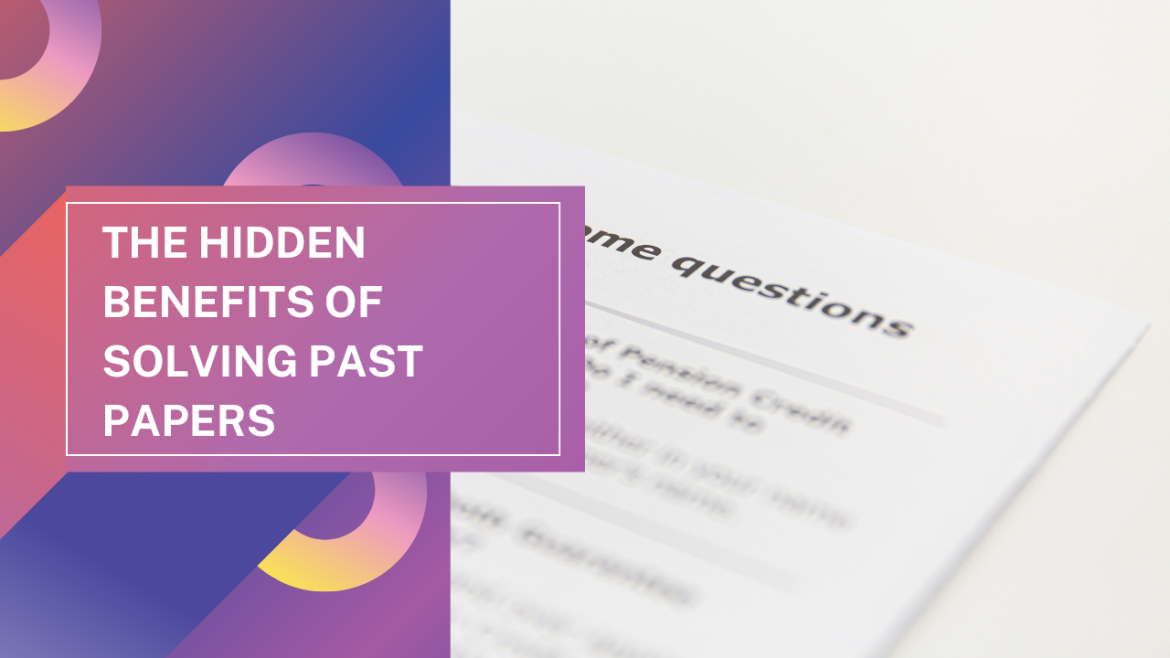For most students, old question papers are just a way to cram before exams. They’re seen as a shortcut — a means to guess what might appear in the final test. But what if I told you that solving previous year papers goes far beyond just securing a few extra marks?
Used the right way, past papers can become one of the most powerful tools in a student’s preparation arsenal. Their true value lies not in predicting questions, but in transforming how you prepare and how well you perform.
In this article, we’ll uncover the less obvious but deeply impactful benefits of solving past papers — and how you can leverage them to improve not just your grades, but your mindset and approach to learning.
1. Develops Pattern Recognition
Exams often follow a certain rhythm. Professors may repeat question formats, prefer particular chapters, or rephrase the same concepts.
Solving past papers helps you detect these subtle patterns over time. You begin to understand:
- Which topics are frequently tested
- How questions are usually framed
- What type of answers score better
This kind of pattern recognition enables smarter, more focused revision — and saves you from wasting time on less relevant material.
2. Builds Real Exam Confidence
Textbooks and notes can’t simulate the real pressure of an exam hall. Past papers can.
By setting a timer and attempting papers under exam-like conditions, you get accustomed to:
- Managing time effectively
- Writing concise, structured answers
- Coping with pressure and staying calm
This process desensitizes exam anxiety. When the actual day comes, it doesn’t feel foreign — it feels familiar.
3. Improves Self-Evaluation
One of the most underrated benefits of old papers is self-assessment. After attempting a question paper:
- Review your answers critically
- Compare with model solutions (if available)
- Identify gaps in your knowledge or writing style
This immediate feedback loop sharpens your preparation and helps you correct course early — well before the final exam.
4. Enhances Conceptual Clarity
You don’t truly understand a topic until you apply it. And past papers force you to apply.
Even if you’ve “read” a chapter, solving related questions often reveals:
- Misunderstood concepts
- Overlooked subtopics
- Poor retention
This leads to deeper revision, revisiting core ideas, and ultimately, stronger conceptual clarity — which stays with you even after the exam is over.
5. Trains You to Think Like an Examiner
What do examiners want? Clarity. Structure. Precision.
By reviewing past papers and answer keys (where available), you begin to think from an examiner’s perspective. You learn:
- What constitutes a high-scoring answer
- Where most students lose marks
- Which phrases or points stand out
This insight allows you to tailor your answers not just for correctness, but for maximum impact.
6. Builds a Sense of Progress
Studying can feel endless and demotivating — especially when there’s no visible progress. But with past papers, improvement is measurable.
You can track:
- How much faster you’re completing questions
- How fewer mistakes you’re making
- How much clearer your answers have become
This tangible progress provides a confidence boost and reinforces consistency.
Bonus: A Resource That Saves Time
Platforms like brpaper.com make accessing past papers simple and organized — whether you’re a B.Tech student looking for PTU, GNDU, or KU papers, or someone prepping for diploma-level exams.
Instead of hunting for files across random groups or forums, you get subject-wise, year-wise access to papers — helping you focus more on preparation and less on the chase.
Final Thoughts
Past papers aren’t just about practice — they’re about perspective. They reshape your preparation, help you study smarter, and condition your mind for real success.
So next time you sit down with an old question paper, remember: you’re not just chasing marks — you’re training for mastery.
